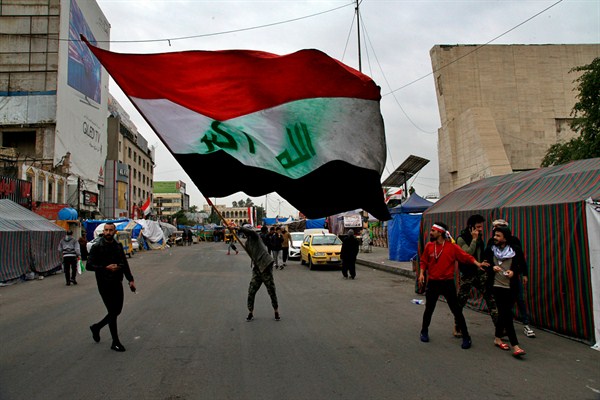BAGHDAD—Anti-government protesters in Iraq have spent more than four months calling for political and economic reforms and venting their anger at the failure of successive governments to provide better living standards and economic opportunities. Security forces, caught off-guard by the strength and resilience of the youth-driven protest movement, have responded with a campaign of repression that has killed more than 600 people and wounded tens of thousands more across the country. But the crackdown has only intensified the crisis, as Iraqis continue to take to the streets demanding justice for slain demonstrators and reforms of the political system.
The government has been largely ineffective in the face of the unrest. Prime Minister Adel Abdul Mahdi has led a caretaker government since announcing that he would resign in late November, as the country’s leading political factions—the pro-Iran Bina coalition and the Sairoon bloc, which is headed by the influential Shiite cleric Muqtada al-Sadr—took two months to settle on a compromise candidate to replace him: Mohammed Tawfiq Allawi, a former communications minister. But immediately after President Barham Salih announced Allawi’s nomination earlier this month, protesters denounced Allawi as part of the same political establishment that they have been railing against. Like Abdul Mahdi before him, Allawi was chosen after weeks of behind-the-scenes negotiations between the leaders of the largest blocs in Iraq’s parliament.
That does not sit well with young Iraqis who make up much of the protest movement, and who have largely been left out of the political process. Nearly 60 percent of Iraq’s population is under 25 years old—too young to remember the horrors of Saddam Hussein’s regime. After Saddam’s overthrow in the U.S. invasion in 2003, this generation has grown up in the shadow of poor governance, corruption and weak democratic institutions that exist mainly to serve the interests of elites. They are worn out by years of mismanagement and continuous violence.

